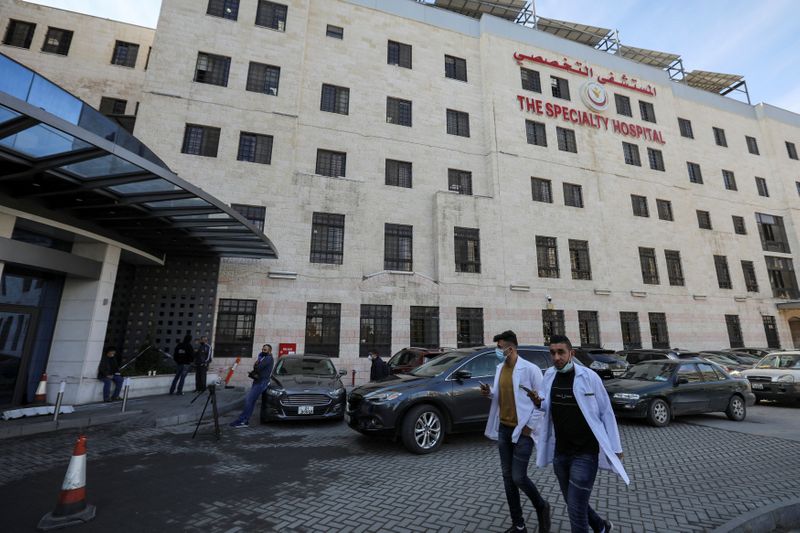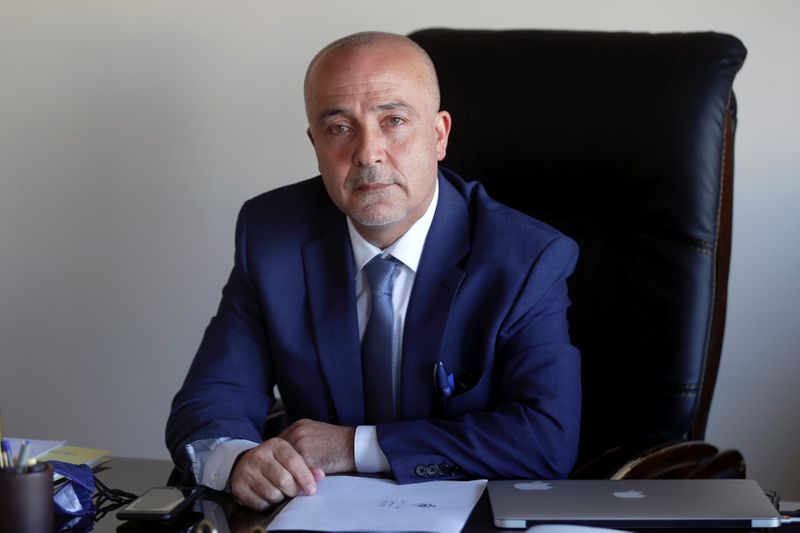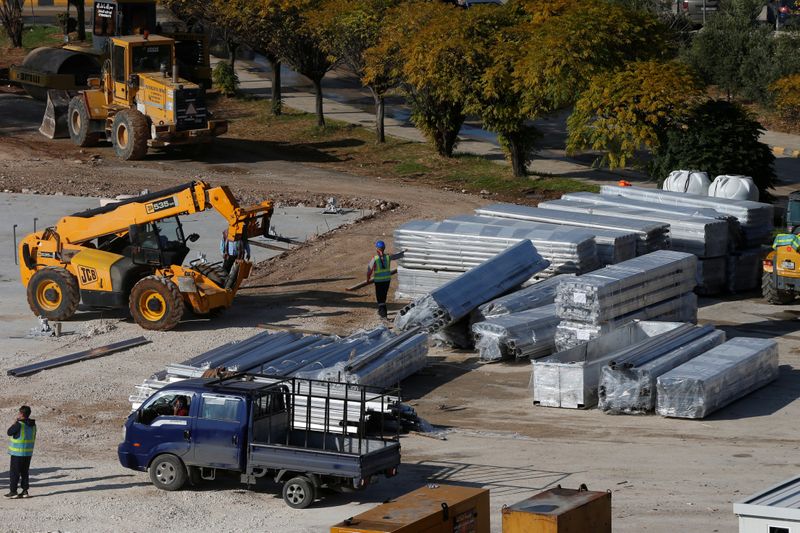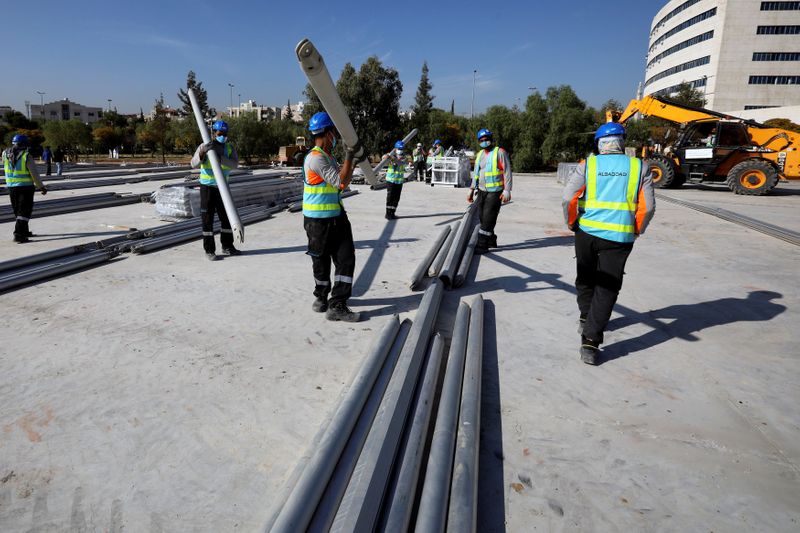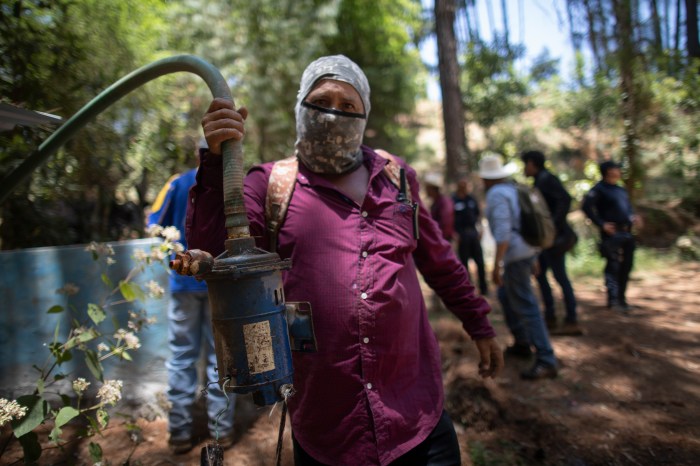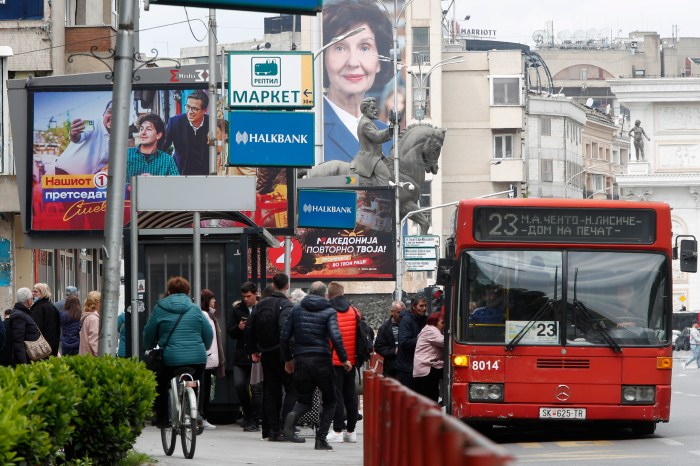AMMAN (Reuters) – Jordan is racing to increase hospital bed capacity as its healthcare system struggles to cope with a surge in new coronavirus cases.
Officials say the country is averaging around 60 COVID-19 deaths daily since the start of November and new confirmed cases have risen from double digit figures a few months ago to a peak of 7,933 on Wednesday.
“The health sector is still holding on but we are planning for the worst,” said Wail Hayajneh, the Health Ministry official in charge of the kingdom’s COVID-19 response.
Prime Minister Bisher al-Khasawneh said the government would by year-end have completed three field hospitals which the army’s medical corps is overseeing, doubling the 1,500 hospital beds that serve COVID-19 patients.
Khasawneh told state media on Wednesday that included doubling Intensive Care Unit (ICU) beds from the current 650.
The country of 10 million has 116 hospitals with a total of more than 14,000 beds, at least a third in private hospitals, one of the highest ratios of beds to population in the region, medics say.
To help shore up the strained public sector, Khasawneh used his sweeping powers under emergency laws in place since March to allow the government to take over private hospitals if needed.
Khasawneh said that would allow officials to confront any shortage of beds “quickly and in a timely way”.
The move to draw on 70 private hospitals with more than 8,000 doctors, who have been taking patients transferred by the state since September, has not been well received by private hospital managers.
“We were surprised by the order which we see as not justified,” said Fawzi Hammouri, head of the private hospitals industry, that once attracted patients from across the region.
The health crisis has laid bare flaws in a public health sector in which up to 8% of the country’s $50 billion GDP is spent but which critics say suffers chronic mismanagement and shortages of qualified medical staff, many of whom have emigrated.
The government has this month rushed to recruit medical staff from graduate nurses to retired doctors, hoping to have at least 2,000 new medics working by the end of the year, officials said.
(Editing by Janet Lawrence)

